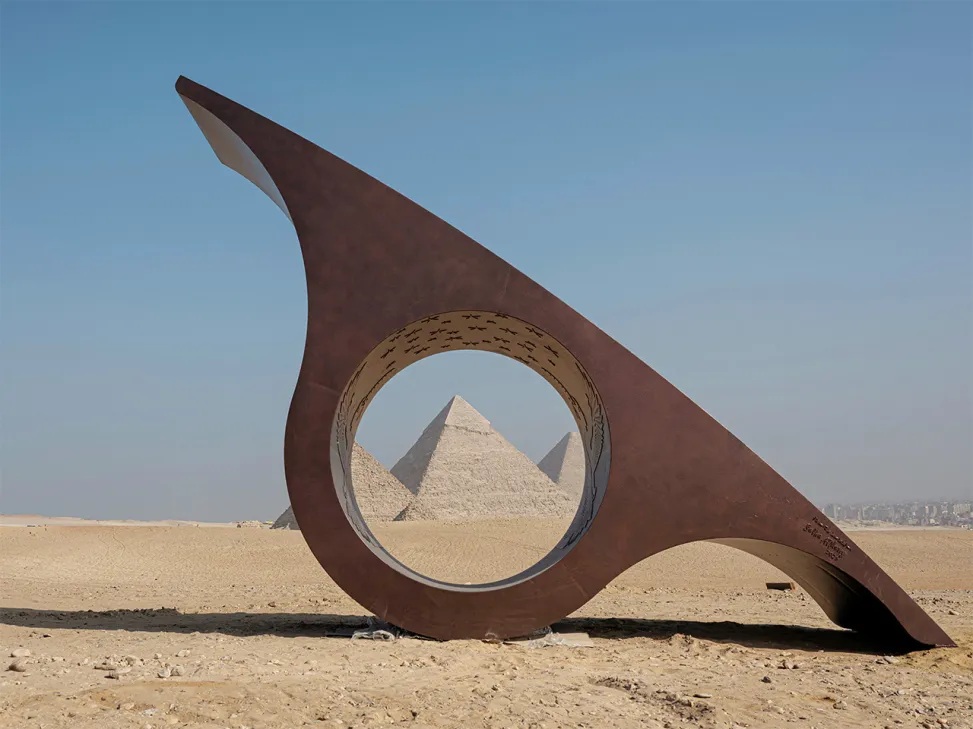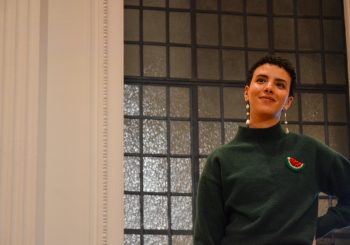Women-owned businesses are growing to be the shining light in the local market, with at least 30 percent or more of all businesses in Egypt are owned by women despite the many challenges they face, such as access to finance and cultural norms. As prices of imports and foreign brands also increased in the last couple of years, Egyptians are beginning to seek an alternative with local brands.
However, women-owned businesses remain to be one of the most underrepresented businesses, with little exposure and connections to the market, which is why it is essential to shine light on the many examples of women who were able to overcome great odds and serve as an inspiration for all those to follow. In this series, Egyptian Streets speaks to several women from the Entreprenelle community, a platform dedicated to mentoring and helping women to start their own businesses, to hear their stories and share them with other women with ambitions of their own.
Entreprenelle’s vision is centered on the power of ‘elle’ – the woman – and aims to change how we look at female entrepreneurs by giving them their own title as an ‘entreprenelle‘.
Doaa Zakaria’s Story – Founder of ‘Craftastic‘
After graduating from the German University in Cairo with a degree in engineering in 2010, Doaa Zakaria worked for 6 years in the engineering field before discovering that this is not where her passionate lies, despite working in multinational companies with a good position.
For many of young Egyptian women who struggle to find jobs they enjoy and is suitable for their circumstances, taking a chance on starting your own business is an alternative to short-lived careers in the corporate field that produce little inspiration or unique products and ideas.
“I decided that I wanted to do something that I love, because I felt like I was wasting my time and I was not really enjoying it,” Zakaria tells Egyptian Streets, “So I simply took the decision to leave and see what I really love, and realized eventually that I loved arts and crafts. I began taking online courses and watching videos all by myself until I mastered the craft.”
With yet little investment or cash, Zakaria taught herself the skills of craftsmanship online before finally starting her own little project ‘Craftistic’, which creates handmade home accessories with colorful designs and cheerful quotes to spread positive vibes in any place.
“I started to go to a lot bazaars and receive feedback from many people, and found that many were a fan of my designs and liked the idea, so it encouraged to continue to design more,” Zakaria notes.


However, things started to take a different turn after she became pregnant, leading her to take a year and a half off due to fears that she wouldn’t be able to continue and balance between two demanding lives.
“It’s really exhausting balancing between a mother and a businesswoman, especially because I do all the designs and accessories by myself,” Zakaria expresses, “but my family’s support is really what pushes me, like when I want to take a course they volunteer to take care of her, and I try to also involve her in my work by coloring in some of my designs.”
“In fact, she gives me a lot of hope,” she adds, “I feel even more encouraged to continue my vision in life after giving birth to her, and to continue doing what I love.”
When Zakaria came back in 2018, she noticed that the local handmade market grew exponentially since she first began, with even more competition ahead of her.
“It was a sign that people have started to acknowledge handmade projects and local brands more, but the downside is that the competition is not easy and you have to also develop yourself, so I started to learn a lot of things and develop myself more by taking more courses and including more products,” Zakaria notes.
To transform her small project into an actual business with future plans, Zakaria contacted Entreprenelle to help set up her business. “They helped me learn how to make a marketing plan, social media marketing, set good prices so that enough profit comes in, and a reasonable financial plan,” she says.
Entreprenelle is one of the few organizations dedicated to encouraging women open their own businesses, facilitating the procedures of finance, training, and networking, which can be difficult for many women to acquire. Women Entrepreneurs Network (WEN), developed by USAID’s (SEED) Project, is also another initiative with the aim to support aspiring and established women entrepreneurs in Egypt and increase their access to entrepreneurial services.

Zakaria also believes in the potential of Egyptian local brands to be exported and sold abroad, as customers around the world appreciate the local designs of Egypt, “I want my business to grow and export because I think people living abroad admire these kinds of designs, and the local market keeps growing every year,” she observes.
For anyone willing to start their own local business, Zakaria remarks that today is a good chance as “the market is now open” and that “people are encouraging local brands, from clothes to home accessories. There are also a lot of bazaars you can go to that support local brands, but you have to teach yourself first and add something new to the market.”
Though most have heard of big names like Okhtein and Temraza, who were able to achieve recognition globally, Doaa Zakaria’s story shows how a woman from any background, whether business or engineering, could start a business by themselves and become financially independent, changing the male-dominated image of the market as a whole.







Comments (0)